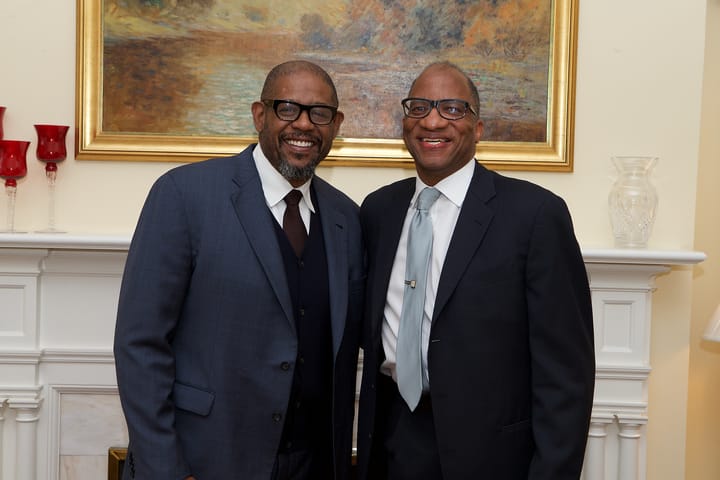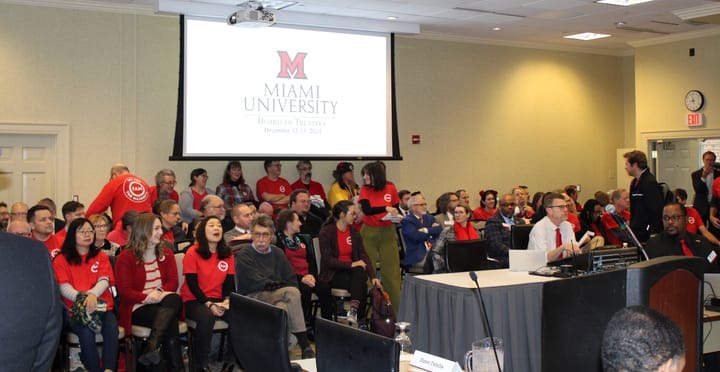Ohio’s Unknown Soldiers
Guest columnist Lee Fisher sat down with Fred Brower, an Oxford resident and former Marine, to learn more about his experience in the military.

Noted Civil War historian and author Joseph Glatthaar said in one of his publications, “War is the sum total of its individual stories, from perseverance, to romance, to drama, to tragedy.”
I carried this phrase with me as I sat down with Fred Brower, a friend and neighbor, to speak about his service experience on a quiet afternoon in Fred’s Oxford home.
Fred has spent most of his life in southwestern Ohio, and his family has been on a farm in the area for six generations. He was born in Dayton and grew up outside the city. After he graduated from Fairview High School, his parents started to push him toward college.
“Somewhere along the way, a bunch of us on the high school football team decided that we would enlist in the Marines,” Fred said. “At some point I ran into a Marine Captain who convinced me that if I was going to go to college and stay in the Marines that I should consider the NROTC program at Miami. Three of us from this football team ended up going into this program, and we all became commissioned, 1st Lieutenant Marine officers upon graduation from Miami in 1950. Ten days after we were commissioned, the Korean War broke out.”
Fred went to Quantico, Virginia for Officer Basic School for sped up training along with 200 others. One of Fred’s classmates went on to become Commandant of the Marine Corp, and 13 became General officers. In February 1951, 50 of them were assigned to the First Marine Division, and Fred left for Korea on his birthday in March, 1951.
“In April, 1951 we set sail from San Diego on a troop ship,” Fred said. “On the last day of the voyage, my name came up to be assigned to a Shore Party Battalion. This turned out to be a logistical support group, and I was disappointed with this assignment because I had been trained to be a rifle company commander. Shortly after we landed and I began this assignment, we had an inspection visit from a Marine General who asked me how I liked my assignment. I had the courage to speak up and told him that I didn’t feel I was being used in the right spot. When he asked me what spot that was, I told him I felt I should be in a rifle company. Three weeks later, as a now ‘green’ 2nd Lieutenant, I found myself assigned to a Platoon Leader’s slot in H Company, 3rd Battalion, 7th Regiment, or H/3/7 as we Marines preferred to call it.”
“Keep in mind that I missed the action at the Chosin Reservoir where Marines suffered horribly,” Fred continued. “This action was over before I arrived; but we were still in combat, and I was with H/3/7 when I was wounded in August, 1951. My next duty station became the hospital ship, Repose, where I recuperated for thirty days. My days as a Platoon Leader were over because I went back to 3/7 and became the Assistant S-2 (Intelligence). It was here that we used information gathered from prisoners to plot night time artillery attacks on suspected North Korean positions.”
By March 1952, Fred was back in the U.S., where he was assigned to a Training Company at Parris Island. He became a part of the Marine Corp Rifle Team and got promoted to Captain before becoming a seaborne Marine as a commander of a Marine detachment on the USS Tarawa. He spent most of 1953 and 1954 on board the Essex-class aircraft carrier, traveling the world with his detachment.
“I, perhaps, would have made a career of the Marines if I had not come down with a case of amoebic dysentery,” Fred continued. “I think some of old Korean germs had come back to haunt me. I ended up in the Naval Hospital in Bethesda, Maryland. From there I was sent to the Chelsea Naval Hospital in Boston where the doctors concluded that I could no longer serve in the Marines. I was medically retired and released from Marine Corps service in 1955.”
“What was life like no longer being surrounded by Marines?” I asked.
“I was extremely disappointed,” Fred said; “but I had been trained to deal with adversity, so I returned to Miami to work on my Master’s Degree with the understanding that the GI Bill would help me finance continuing my education. While back in Oxford, I, also, got interested in Real Estate as well as romancing college coeds. One of these ladies was Mary Jane, and we were married the day after she graduated from Miami in 1956. My first Real Estate office was located in the old Purity. I also became the Administrative Secretary for the other love of my life, my Miami Fraternity, the Betas.”
“Our family began a year after we were married, and we have been blessed with three wonderful daughters: Betsy, Becky and Suzie,” Fred continued. “They have all returned to live in this area, and we are glad to have them around us.”
“Looking back on my service, I can tell you what it did for me,” Fred said. “It instilled a self- confidence in me that I never had before I entered. It also taught me a sense of responsibility that every commanding officer has to have. Perhaps, most importantly, it taught me how to evaluate people and to assess their strengths and weaknesses. There is no question in my mind that I may never have accomplished the things I have done in my life without having been a Marine.”
Fred’s story is held together by Semper Fidelis, the Marine Corp motto of ‘always faithful.’ On July 19, 1918, Marine First Lieutenant Clifton Cates sent the following message from Belleau Wood, France to his commander: “I have only two men out of my company and 20 from another. We need support; but it is almost suicidal to try to get it here as we are swept by machine gun fire, and constant barrage is on us. I have no one on my left and only a few on my right. I will hold.”
Think about Lieutenant Cates, Captain Brower, and millions like them the next time you think you are having a really bad day. Semper Fi.
Lee Fisher is a Miami graduate, a Vietnam veteran, an in-class student at Miami, and a resident of the Knolls of Oxford.




